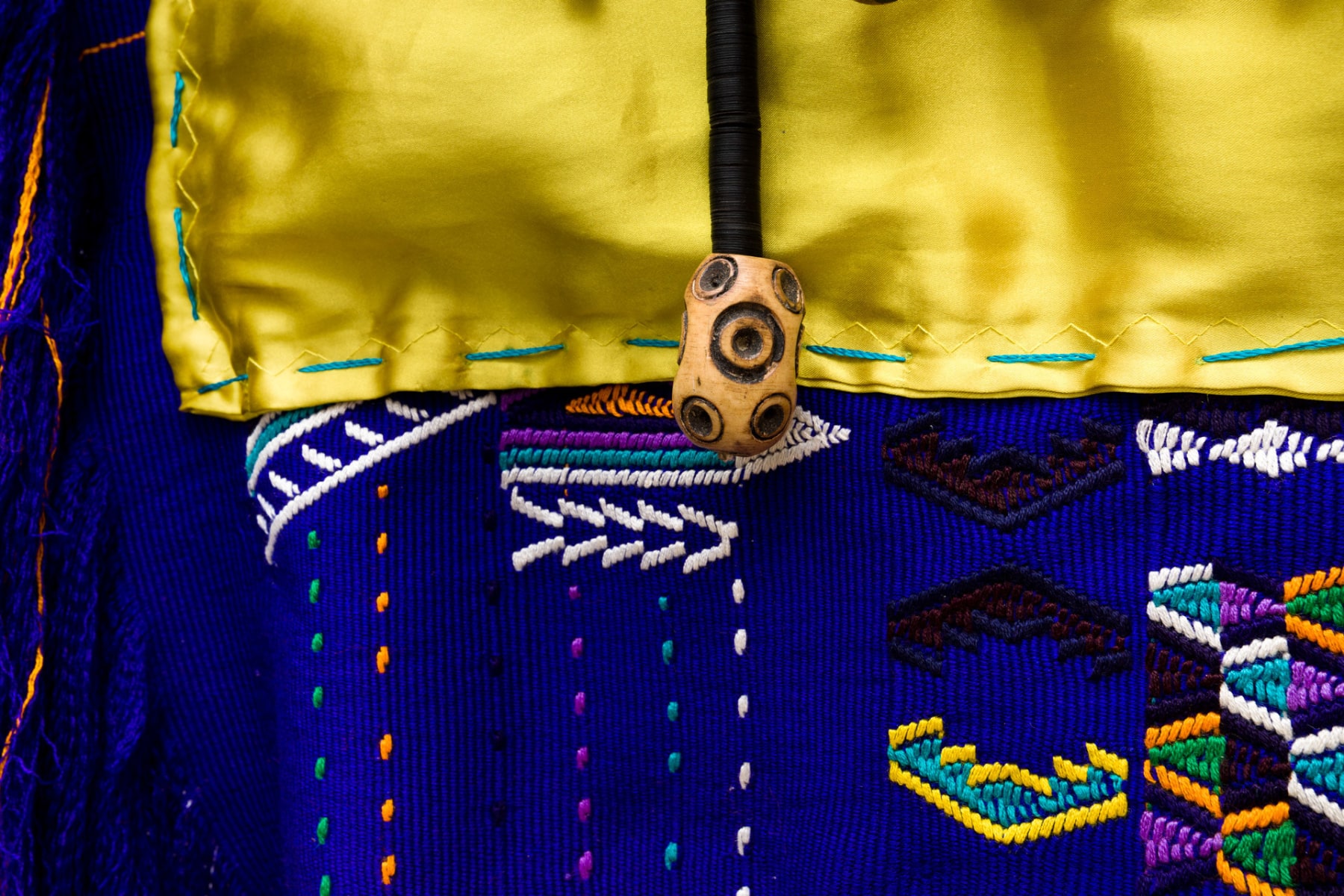Novíssimo Edgar
As Especiarias da Índia, 2023
bordado típico da Guatemala, cetim, tecido indiano, colares africanos, terço de madeira, símbolo de Reiki em aço inox, cimento e folha de ouro
[typical Guatemalan embroidery, satin, Indian fabric, African necklaces, wooden rosary, stainless steel Reiki symbol, cement and gold leaf]
[typical Guatemalan embroidery, satin, Indian fabric, African necklaces, wooden rosary, stainless steel Reiki symbol, cement and gold leaf]
108 x 90 cm
[42 1/2 x 35 3/8 in]
[42 1/2 x 35 3/8 in]
Mais imagens
Pouco se fala sobre as especiarias buscadas em terras tão distantes. Quais eram os verdadeiros interesses e características deste comércio? O historiador português José Manuel Garcia observa que Pedro Álvares...
Pouco se fala sobre as especiarias buscadas em terras tão distantes. Quais eram os verdadeiros interesses e características deste comércio? O historiador português José Manuel Garcia observa que Pedro Álvares Cabral não recebeu ordens para procurar um caminho para a Índia através do Ocidente: "Ele não podia ir mais para o Oeste porque aquelas terras pertenciam aos espanhóis." Assim, Garcia descarta a hipótese do acaso na "descoberta" do Brasil. Afinal, não existe descoberta quando já se tem a intenção de encontrar. As especiarias da Índia se tornaram o álibi perfeito para a colonização do Brasil — talvez elas sejam o verdadeiro elefante branco.
[Little is said about the spices sought in such distant lands. What were the real interests and characteristics of this trade? The Portuguese historian José Manuel Garcia points out that Pedro Álvares Cabral was not ordered to look for a route to India via the West: "He could not go further west because those lands belonged to the Spaniards." Thus, Garcia dismisses the hypothesis of chance in the "discovery" of Brazil. After all, there is no discovery when there is already an intention to find. The spices of India became the perfect pretext for the colonization of Brazil — perhaps they are the real white elephant.]
[Little is said about the spices sought in such distant lands. What were the real interests and characteristics of this trade? The Portuguese historian José Manuel Garcia points out that Pedro Álvares Cabral was not ordered to look for a route to India via the West: "He could not go further west because those lands belonged to the Spaniards." Thus, Garcia dismisses the hypothesis of chance in the "discovery" of Brazil. After all, there is no discovery when there is already an intention to find. The spices of India became the perfect pretext for the colonization of Brazil — perhaps they are the real white elephant.]











